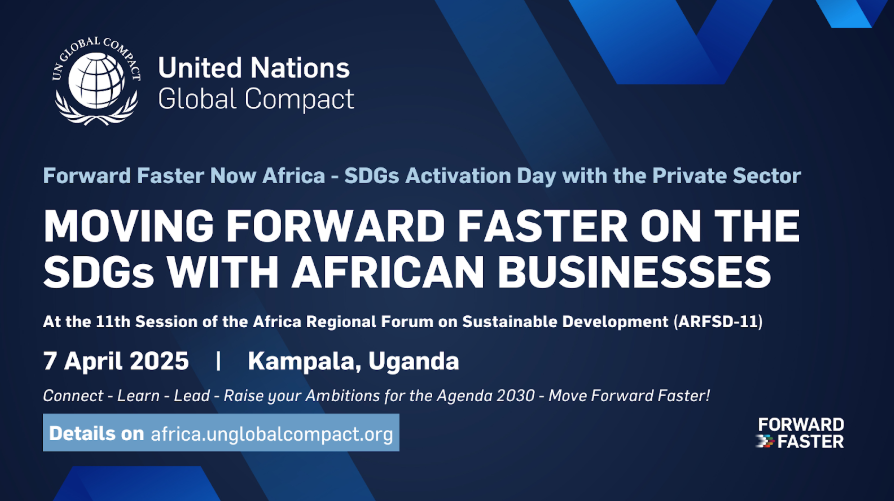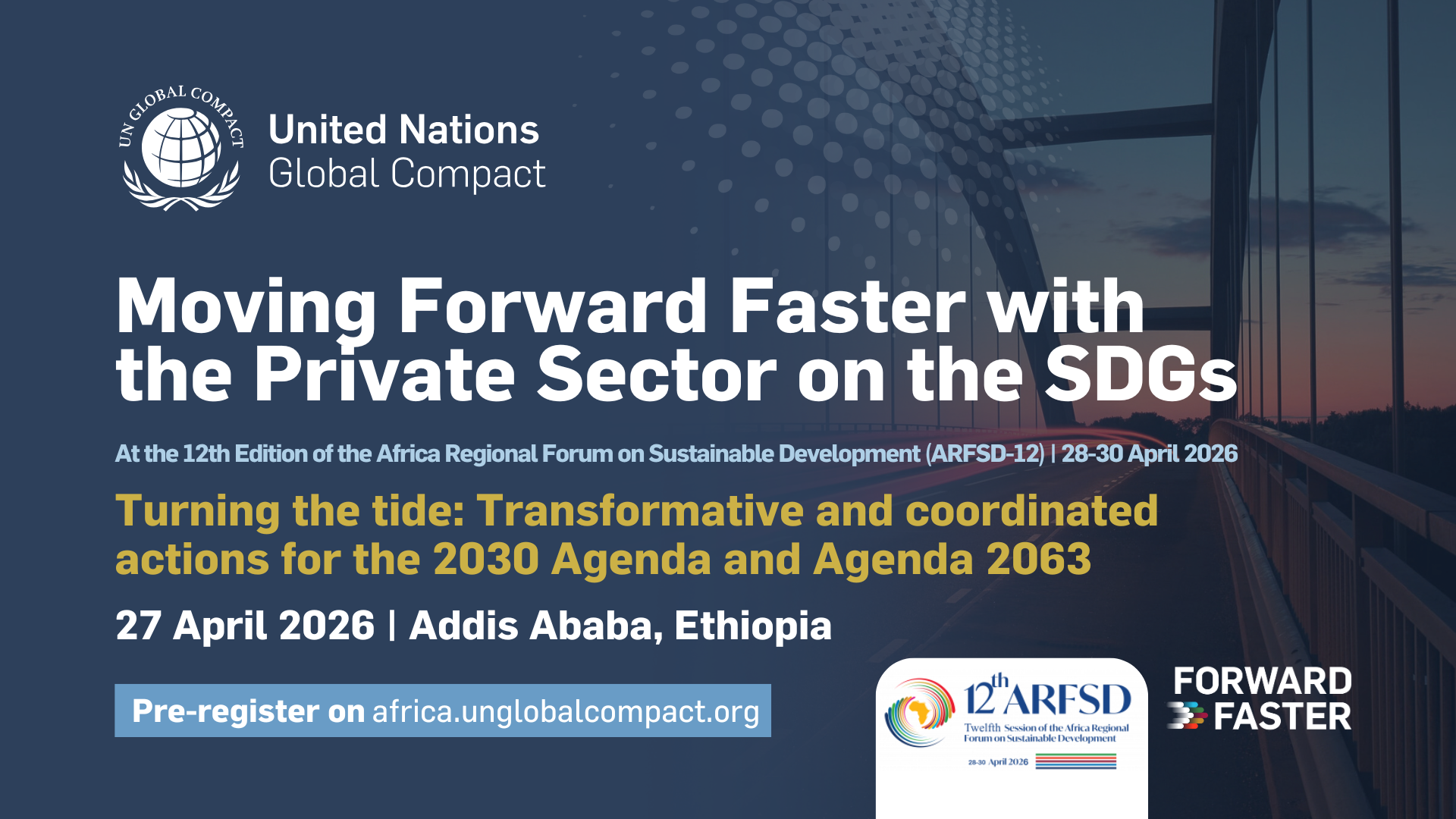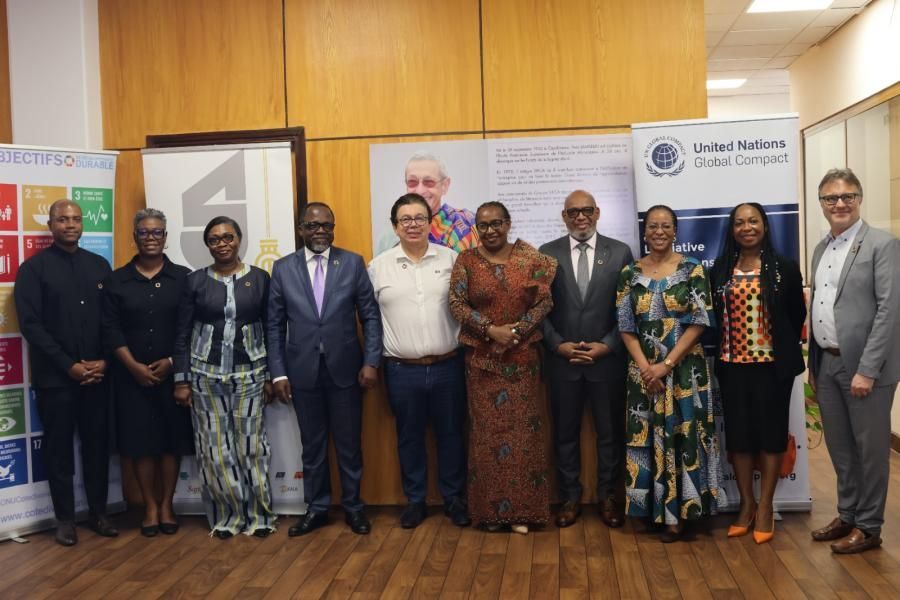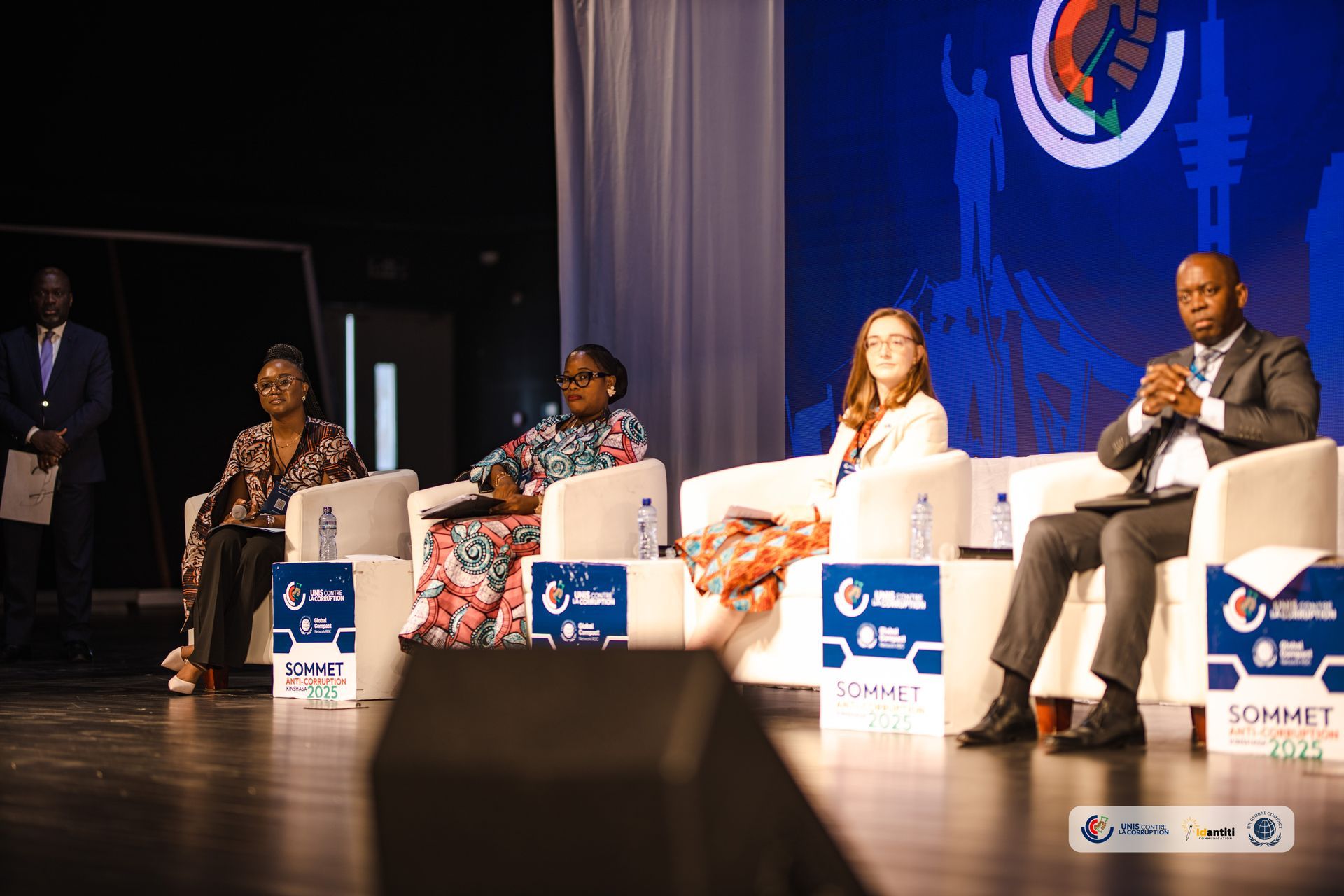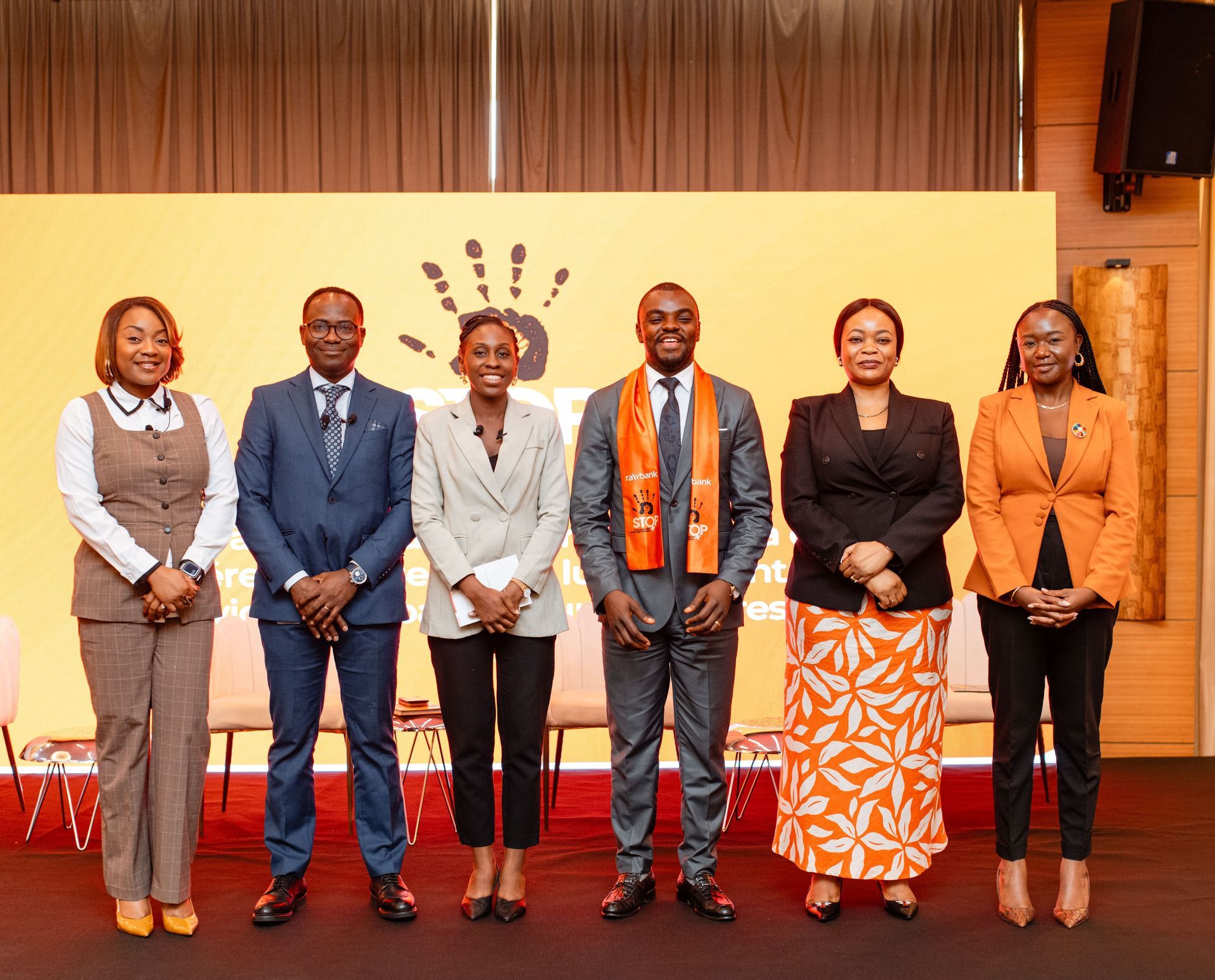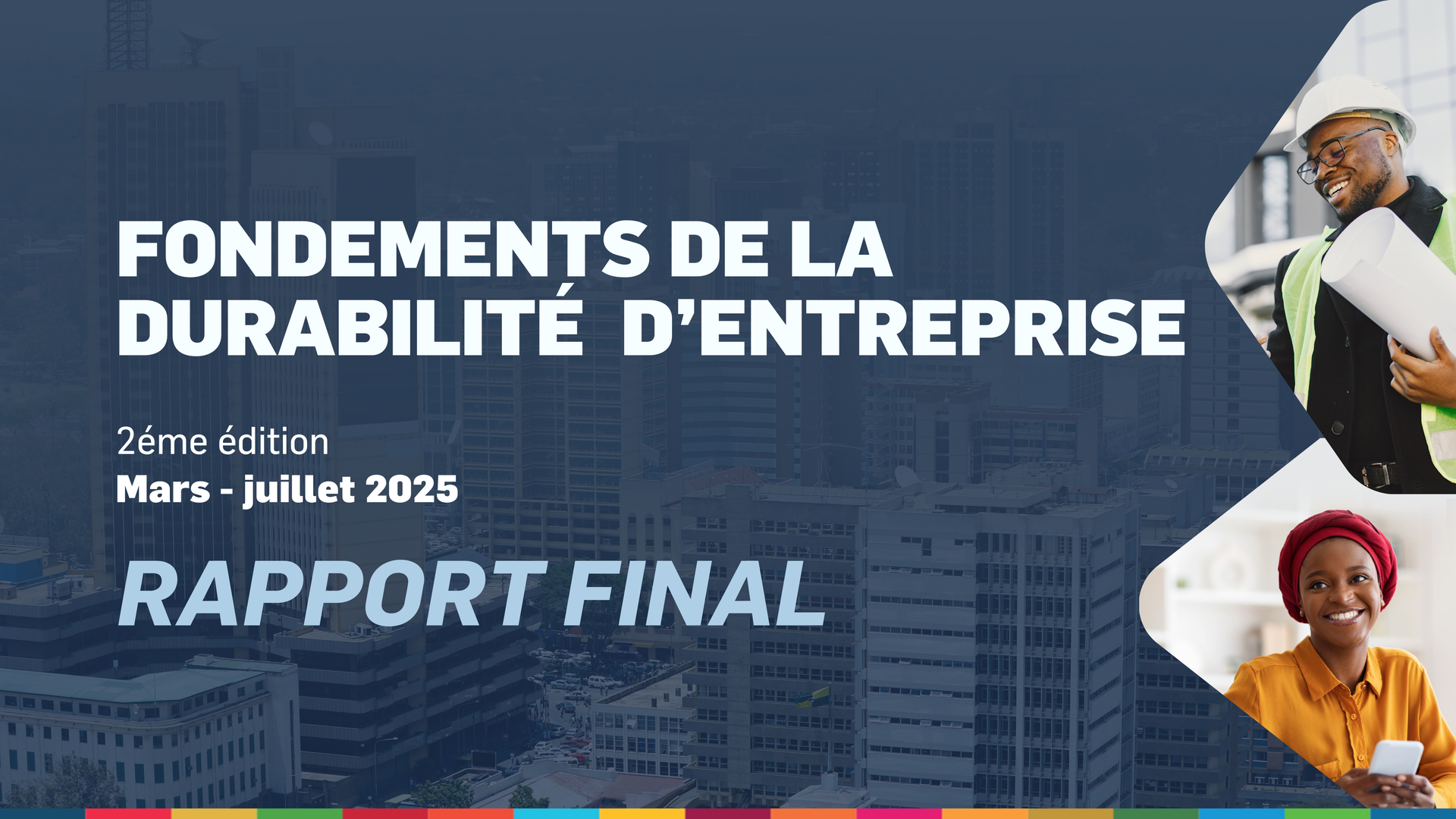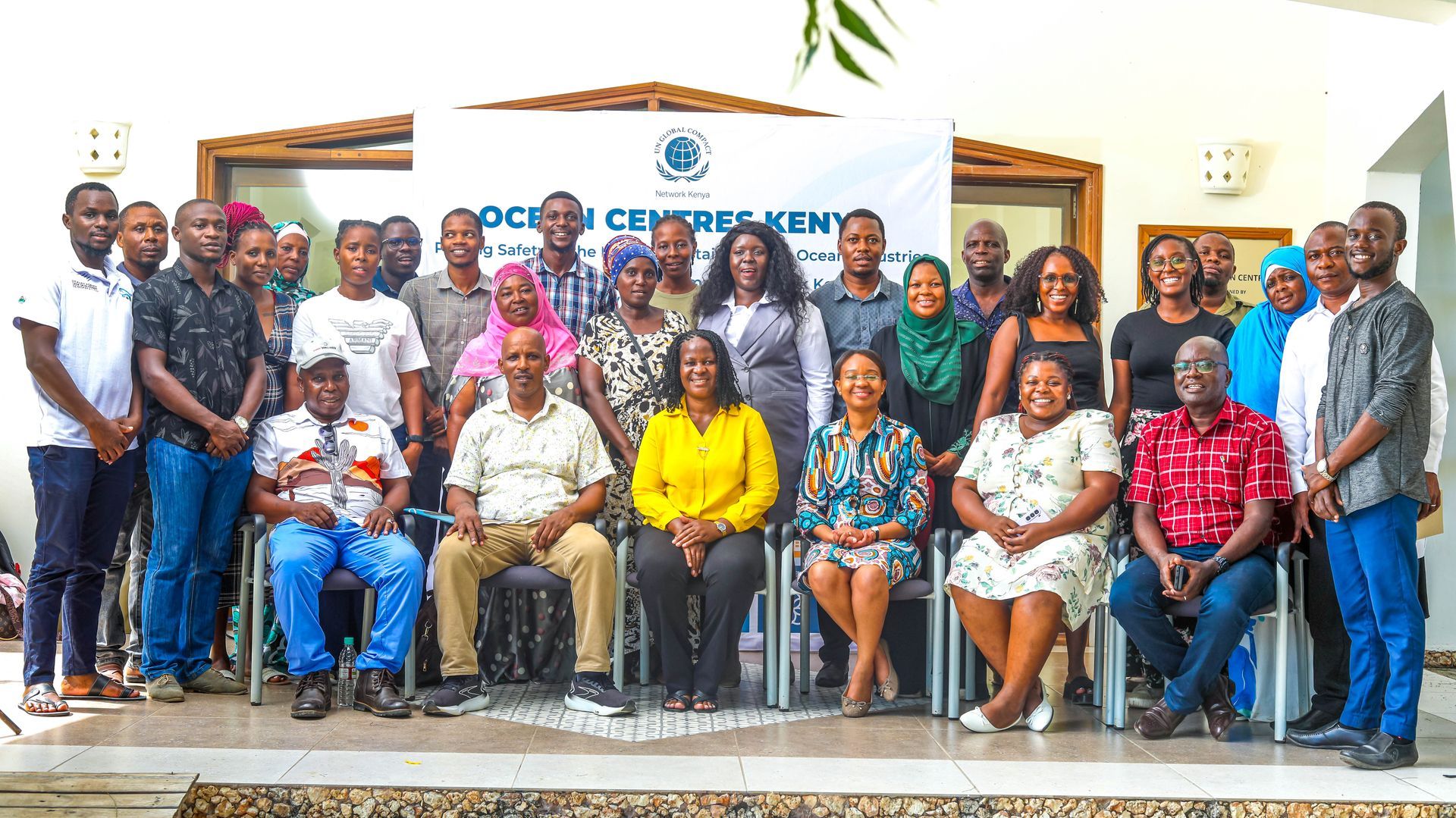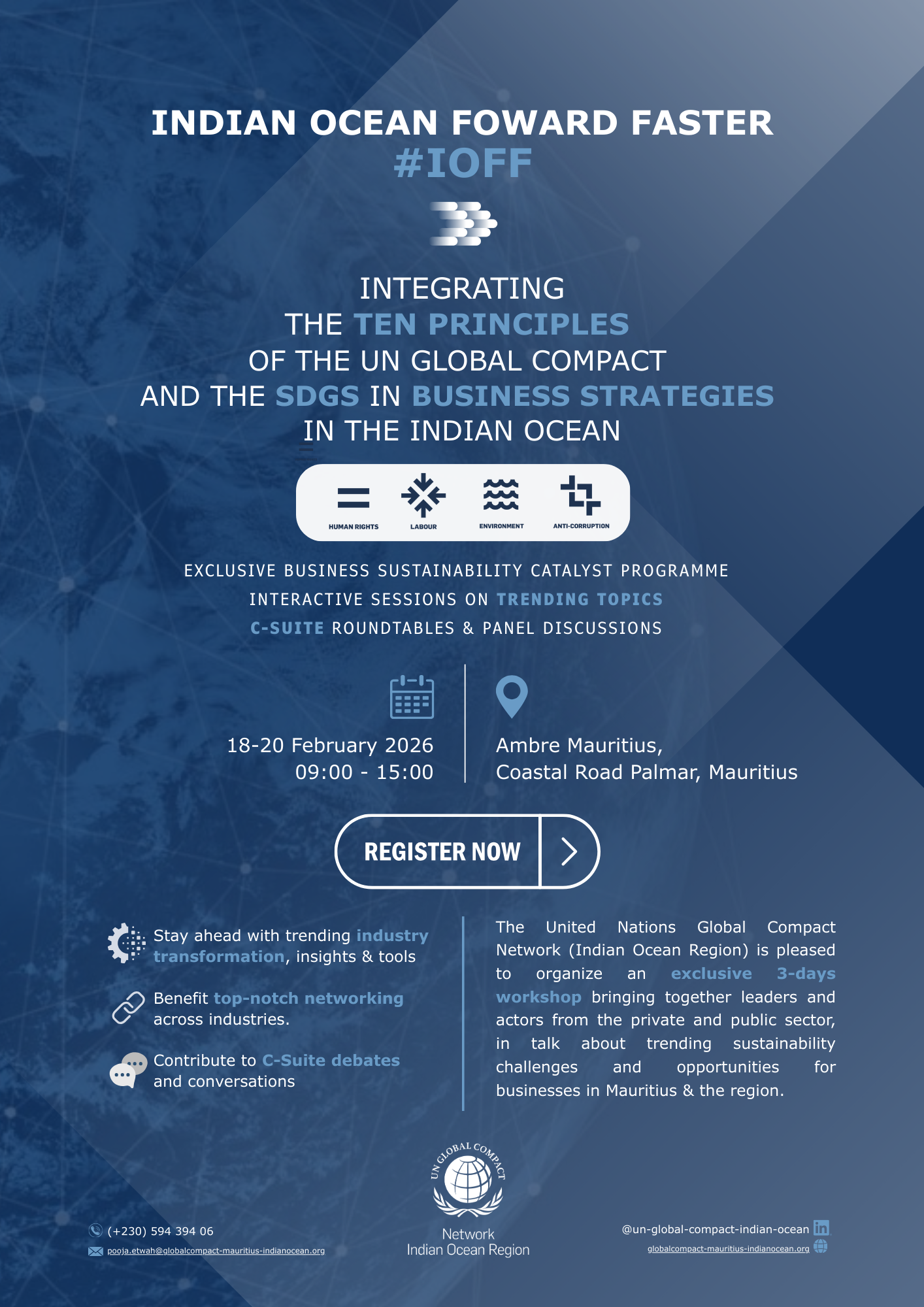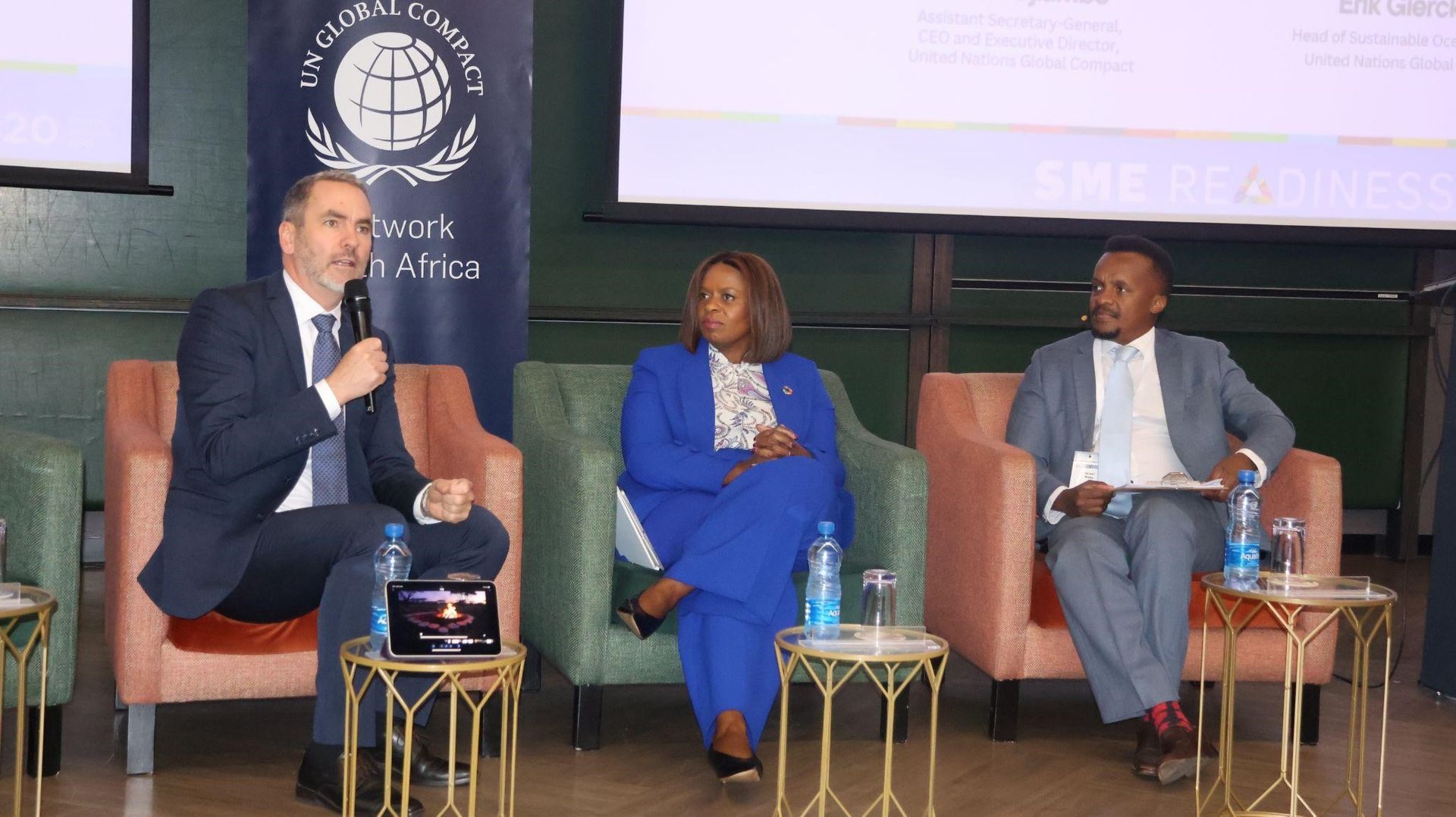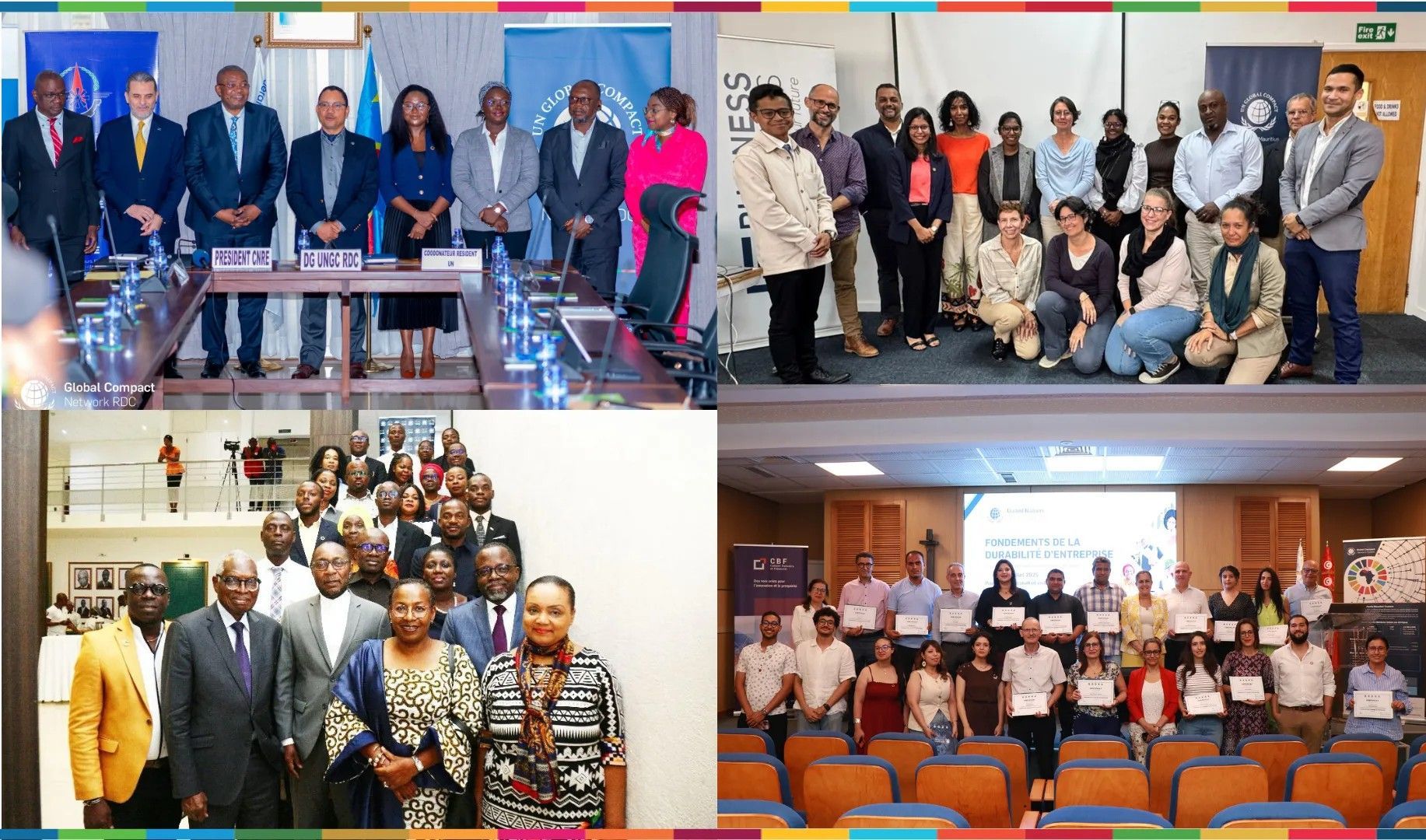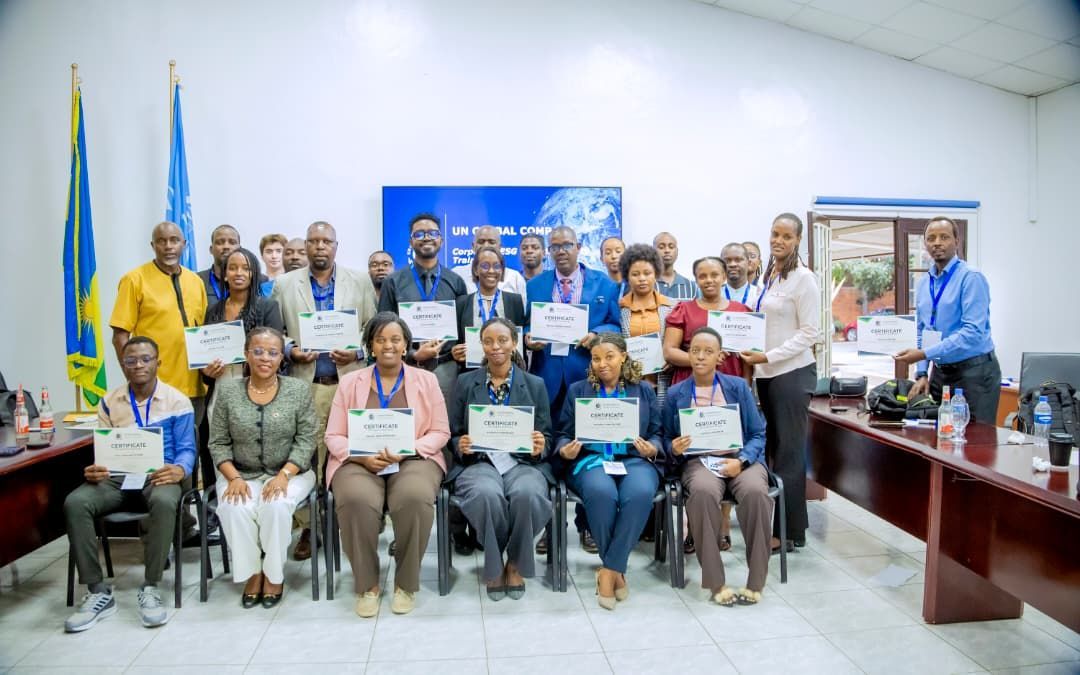FORWARD FASTER NOW AFRICA—SDGs Activation Day with the Private Sector
Join the SDGs Activation Day at Forward Faster Now Africa
SDGs Activation Day - Forward Faster Now Africa
11th Africa Regional Forum on Sustainable Development (ARFSD), 7-11 April 2025
Moving Forward Faster Now on the SDGs with African Businesses
7 April 2025 | MEERA Room, Speke Resort and Conference Center, Munyonyo, Kampala, Uganda.
The SDG Activation Day labelled “Forward Faster Now in Africa” is set as the private sector space within the 11th Africa Regional Forum on Sustainable Development (ARFSD-11). The ARFSD is an annual inter-governmental and multi-stakeholder platform mandated to review progress in the implementation of the 2030 Agenda for Sustainable Development and Agenda 2063, identify and promote interventions to accelerate implementation of the two Agendas, and generate Africa’s regional inputs to the High-Level Political Forum on Sustainable Development (HLPF) and other major national, regional, and global meetings.
The eleventh session ARFSD-11 is jointly organized by ECA and the Government of Uganda in collaboration with the African Union Commission, African Development Bank and the UN System, including this year the UN Global Compact, under the theme “Driving job creation and economic growth through sustainable, inclusive, science-and evidence-based solutions for the 2030 Agenda and Agenda 2063” and aligns with that of the 2025 HLPF, which is “Advancing sustainable, inclusive, science-and evidence-based solutions for the 2030 Agenda and its Sustainable Development Goals for leaving no one behind”.
In line with the 2025 HLPF, ARFSD-11 will conduct an in-depth review of implementation in Africa of SDGs 3 (good health and well-being); 5 (gender equality); 8 (decent work and economic growth); 14 (life below water) and 17 (partnerships for the Goals) and the corresponding goals of Agenda 2063 with a special focus on its second ten-year implementation plan (STYIP).
The SDG Activation Day will look into the five areas of the Forward Faster initiative, with a focus on living wage, gender equality and finance-investments. Organized by the UN Global Compact’s Africa Hub, the SDG Activation Day will convene committed businesses from across Africa on 7 April 2025, to raise awareness and ambitions on the business case for the SDGs, share experiences and impact stories from businesses that are taking action, and highlight practical tools that businesses can leverage to move forward faster on the Agenda 2030 in Africa.
Objectives
● Raise the ambitions of the private sector to drive action: Inspire actionable commitment towards corporate sustainability, including the Global Compact’s Forward Faster targets in women empowerment, living wage and sustainable finance.
● Facilitate peer-learning among the private sector in the region: Provide a platform for sharing best practices, impact stories, and innovative approaches, leveraging science and technology in corporate sustainability across industries and countries in Africa.
● Catalyze partnerships for the SDGs: Facilitate networking opportunities for businesses, government officials, United Nations representatives, and other stakeholders to explore collaboration on sustainable development initiatives to accelerate the implementation of the SDGs and goals of Agenda 2063 at the national, regional and global levels.
What to Expect—Why Attend:
- Fireside Chat: Hear from leading African business executives on how they are taking transformative action aligned with the SDGs and the opportunities with the Forward Faster initiative.
- Panels : Gain insights and best practices from pioneering African companies on tangible initiatives and impacts in the areas of
gender equality , and
sustainable finance .
- Capacity Building and Workshop : Learn from experts on the emerging concept of Living Wage - Share your insights and initiatives with peers - Gain insights from pioneering companies on key areas like living wages, gender equality, and sustainable finance.
- Networking: Forge meaningful connections and partnerships with peers, policymakers, and sustainability experts at the networking reception that closes the day.
Moderator: Mr Maurice MUGISHA
08:00 - 08:30
Registrations
08:30 - 09:00
Opening Remarks
Ms Sanda OJIAMBO, Assistant Secretary General and CEO, United Nations Global Compact
(video message).
Mr Antonio PEDRO, Deputy Executive Secretary, United Nations Economic Commission for Africa.
Setting the scene for the Day.
Dr. Hervé LADO, Africa Head, United Nations Global Compact, Abuja.
Introduction to Forward Faster (2mn video).
09:00 - 09.30
Fireside Chat with:
Mr Martin OCHIEN’G, CEO, Sasini Group, Kenya. Chair of the Board of the UN Global Compact Network Kenya, Member of the Africa Business Leaders Coalition (ABLC).
In this fireside chat, a distinguished African CEO will provide insights about the essential role the private sector plays in accelerating the SDGs. The CEO will share how the SDGs have guided business practices in the company with examples of outcomes, calling on other senior executives to use their companies as a lever to drive sustainable development, creating jobs and supporting economic growth.
09:30-11.00
Panel on Finance, Investments and Public-Private Partnerships (PPPs) for the SDGs:
Insights from Financial Institutions, Businesses, Investors.
The world needs 3 to 5 trillion USD of investments annually to meet the SDGs. With 2024 confirmed as the warmest year on record, it is essential to mobilize adequate funding for sustainable investment, including in waste management, clean energy, adaptation and resilience. Despite having contributed little to global emissions, Africa continues to face significant barriers in the mobilization financing at affordable rates in local currency terms which is essential to funding sustainable development. This session will explore with financial institutions how more internal and external capital can be mobilized including for SMEs, risk can be mitigated and distributed fairly, and innovative financial tools (PPPs, carbon, markets, sustainable bonds,...) can be leveraged for the SDGs and for the SDGs- sensitive sectors where there are investment opportunities for SMEs and start-ups.
Setting the Scene: Mr Daniel LEVA, Manager, Government Relations and Africa, UN Global Compact, New York.
Panelists
Ms Mukami KARIUKI, Country Manager, World Bank, Uganda
Ms Sarah CARL, Head of Programmes and Policy Development, IOM Uganda
Mr Robert HANNA, Director, Sustainable Energy Botswana, Botswana
Mr Allan MAFABI, CEO, Britam Insurance Uganda
Mr Gift SHOKO, CEO, Equity Bank Uganda
Mr Robin BAIRSTOW, CEO, I&M Bank Uganda
Mr Aman SEMIR, Chief Transformation and Strategy, Cooperative Bank of Oromia, Ethiopia.
Mr Jim MUGUNGA, Chief PPP Unit, Ministry of Finance, Uganda.
Mr Yusuf DAYA, Director, AU/AfCFTA Relations and Trade Policy, African Export-Import Bank, Egypt.
Mr Soleman ABDI IDD, Chairman, ADHI Africa Holding, Rwanda.
Mr Paul RUSSO, CEO, KCB Bank, Kenya.
11.00-11.30
Break
11.30-13.00
Panel on Gender Equality featuring experiences from the Africa Business Leaders Coalition (ABLC) & Forward Faster.
At current rates, it is estimated that it will take more than 150 years to close the gender gap on the continent, causing Africa to miss out on a potential 24% increase in GDP per capita if the gender gap were closed. The Africa Business Leaders Coalition, a pan-African group of 70+ CEOs from a diverse range of sectors with a combined USD 165+ billion in revenues and ~1 million employees, has pledged to take concrete action to advance gender equality in their companies, supply chains and communities with the launch of the ABLC Gender Statement in 2024. This session will feature case examples from ABLC member companies and learnings from the UNGC- BCG report on Corporate Africa Advancing Gender Equality. This session will allow for interactive exchanges with business leaders from SMEs, large businesses, and UN officials on the best practices and opportunities to drive gender-balance in business to enhance performance in Africa. We will also hear from signatories to the UN Global Compact’s Forward Faster Gender Equality targets in an effort to boost collective action at scale to close gender gaps in the private sector.
Setting the Scene: Ms Judy NJINO, Executive Director, UN Global Compact Network Kenya.
Panelists
Dr Paulina CHIWANGU, UN Women Resident Representative, Uganda
Mr Martin OCHIEN’G, CEO, Sasini Group, Kenya
Ms Trish KALOMBOLA, CEO, TowerCo of Africa (Axian Group), DR Congo
Ms Evelyne SERRO, Senior Manager Sustainability, Safaricom, Kenya
Ms Meridah NANDUDU, Founder, Bayaaya Speciality Coffee Ltd., Uganda
Ms Doreen Jean NSASIIRWE, Founder, Westlink Delicacy Api Group Ltd, Uganda.
13.00-14.00
Lunch Break
14.00-16.30
Workshop on Living Wage, Decent Jobs and Economic Growth:
Opportunities and challenges for business engagement on living wage.
Today, over a billion working people worldwide –1/3 of all workers – are estimated to earn less than they need to afford a decent standard of living. This interactive workshop will address living wages as a foundational element in poverty alleviation and economic development in Africa. With a profound understanding that addressing working poverty is essential for advancing multiple SDGs, this session invites business leaders, policymakers, and practitioners to explore challenges and opportunities in designing and implementing living wage policies. Participants will engage in discussions focusing on incentivizing businesses to adopt inclusive business models and understand how paying a living wage can strengthen their operations, enhance employee satisfaction, and drive sustainable economic growth. The workshop will create a collaborative atmosphere for sharing case studies and innovative approaches to integrate living wage into corporate practices. It aims to cultivate an understanding of the broader social and economic stability that can be achieved when businesses commit to fair compensation. Participants will leave equipped with actionable insights and tools to advocate for and implement living wage frameworks within their organizations, contributing to a more equitable and prosperous future for all in Africa.
Setting the Scene: Mr Mohammed MWAMMADZINGO, Labour Lead, Africa Hub - UN Global Compact, Moderator of the Workshop.
Panelists
Ms Caroline MUGALLA, Regional Director ILO East Africa.
Mr Noah NDAKALA, CEO Ndakala Associates, Kenya.
Ms Suzan MATAKA, Head of Human Resources, Kakira Sugar, Uganda.
Ms Rhoda NALUBEGA, Rear Poultry Hub Ltd, Uganda.
Closing Remarks
Dr Hervé LADO,
Africa Head, UN Global Compact
16.30-18.00
Pause
18.00-21.00
Networking Reception with Businesses, Policymakers and UN.
The networking reception will offer unique opportunities to business and sustainability leaders to forge meaningful connections and partnerships with peers, policymakers, and the UN system.
Join us in Kampala to amplify your business’s role in advancing the SDGs in Africa and building a sustainable and prosperous future for the continent.
